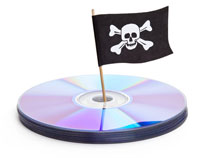RIAA Scolds Google, Wants Search Algorithm Changed To Fight Online Piracy
Saying that Google has a “special responsibility” to fight copyright infringement, the Recording Industry Association of America (RIAA) has issued a report card that scolds Google for not following through on promises to fight piracy. In a report card issued Monday, the RIAA takes a look back at four promises that Google made last year […]
 Saying that Google has a “special responsibility” to fight copyright infringement, the Recording Industry Association of America (RIAA) has issued a report card that scolds Google for not following through on promises to fight piracy.
Saying that Google has a “special responsibility” to fight copyright infringement, the Recording Industry Association of America (RIAA) has issued a report card that scolds Google for not following through on promises to fight piracy.
In a report card issued Monday, the RIAA takes a look back at four promises that Google made last year surrounding copyright protections on the web. Overall, Google gets an “Incomplete” grade. The RIAA admits that Google has “taken some modest steps” to fight copyright infringement, but spends most of its five-page report scolding Google for coming up short: “…the promises made by Google remain unfulfilled,” the report says.
One of the specific problems that the RIAA cites is search terms that encourage copyright infringement continuing to show up in Google’s Autocomplete search suggestions. The report card mentions a search for “lady gaga mp3,” which includes terms that “lead to illegal sites,” according to the RIAA.
In January — about seven weeks after making its promises — Google did begin to remove some piracy-related terms from Autocomplete.
The RIAA credits Google for acting more quickly to remove links to “infringing files” in its search results and on Blogger-hosted blogs to less than 24 hours. On the flip side, the report says the takedown time for pirate apps in the Android Marketplace still takes more than 24 hours and criticizes Google for not adequately screening apps before they appear there and for making money off these apps before they’re removed from the marketplace.
Among several requests, the RIAA wants Google to change its search algorithm to favor sites that offer content legally.
Sites that engage in infringing activity should not appear as the first results when searching for what entertainment content to download or stream. This just leads to more piracy and popularity of the site. Rather, whether a site is authorized or unauthorized to make copyrighted works available to the public should be a significant indicator in determining ranking of the result, with unauthorized sites having lower rankings than authorized sites.
And the RIAA isn’t the first to suggest such an idea. It came up early this year in the US House of Representatives during a hearing about online piracy.
There’s no mention in the RIAA report card of the recently announced Google Music service, which is essentially Google’s version of the iTunes Music Store (or Amazon MP3 store) and can be seen as an attempt to fight piracy by helping consumers find and buy music legally.
(Stock image via Shutterstock. Used with permission.)
Contributing authors are invited to create content for Search Engine Land and are chosen for their expertise and contribution to the search community. Our contributors work under the oversight of the editorial staff and contributions are checked for quality and relevance to our readers. The opinions they express are their own.
Related stories
New on Search Engine Land
